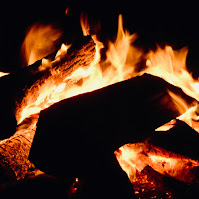It almost happened last Sunday.
I was preaching from the letter of 1 John in the New Testament. 1 John says a lot about love. I had approached the subject of love by telling about a PBS interview I’d heard a few days before with a man who had survived the 1994 Hutu genocide of Tutsis in Rwanda. Emmanuel Turaturanye was 16 years old when the genocide started, but he somehow escaped and lives now in the US. In the interview he credited his ability to overcome the trauma he’d gone through to the love he had heard about and experienced in the church where his father was pastor. Love had given him the power to forgive (though he could not forget) and to move on with his life.
I was so impressed with the interview that I used Emmanuel’s story to illustrate what I understand 1 John to be saying about and claiming for love. Recounting the interview was a big chunk of my sermon, which ended with a exhortation to let love guide our own lives as it was guiding Emmanuel’s.
After the service, a woman and her young daughter approached me. She introduced herself as a survivor. I asked what she had survived. “The Rwanda genocide,” she said.
I did not know how to respond. I wanted her to say more before I dug myself deeper into some hole I perhaps didn’t realize I had spent 20 minutes digging for myself. I guess my next question was how old she was at the time. “Eight,” she answered. Again, I was silenced. I could not imagine.
We finally began to converse a little more freely. It helped me when she assured me that she genuinely appreciated hearing what I had said on the 30th anniversary of the horror. She showed me a old photo of her family, pointing out several who had been slain. She told me she’d been kept safe in “Hotel Rwanda” and with the help of a Catholic group. I think was struggling not to cry.
Today, she and her husband (who is also Rwandan, although they met after they both were in the U.S.) are parents of two young children, and she is an internal medicine physician in one of Cleveland’s major health systems. Apparently she and her family have worshipped at our church from time to time, though I did not recognize them.
That she was there that Sunday, when I preached that sermon, feels almost like a miracle of providence. That what I say seems to be have been okay with her, despite the pain it had recalled to her mind, is a sign of grace.
She gave me her phone number as we parted. I plan to call her soon. I have to figure out what I will say when I do. Maybe I will begin with thanks.
Like most Americans, I suspect, I know very little about Rwanda. I read some posts about it just before I started to write this, and realize that my sermon really did not provide any context for the story I made central to it. That historical and social and political context is complex, as most such things are. It would have overwhelmed the points I was trying to make.
One thing I did learn, though: Rwanda today is around 94% Christian. Assuming the percentage of Christians was about the same in 1994, and knowing that Emmanuel’s father’s congregation included both Hutus and Tutsis, I would not be surprised some of the violence that happened was Christian on Christian, maybe even justified as being carried out “in the name of Jesus.” I don’t know that, but how can it be otherwise? It’s not the way we beloved children of God are to be with one another.
Injustice and inequality that create distrust that morphs into hate can easily become murder, war, and genocide. People who consider themselves Christians cannot be sure they can never be lured into such acts by crowd psychology that urges them to hate groups who are different from theirs. We must resist calls to distrust and hate others the moment we hear them. I suspect most genocides begin in words.
When Emmaunel was asked what he had to say to us in our own contentious times, he replied, “When you see someone mistreated, say it. Don’t wait to find out how it will work out.”
Hate-filled words are potent weapons of mistreatment. They must not be allowed to take over our lives, our places of worship, or our nation.






